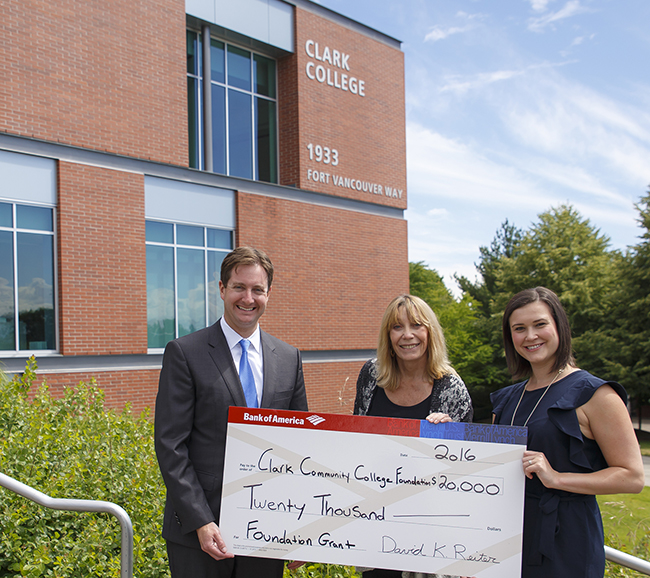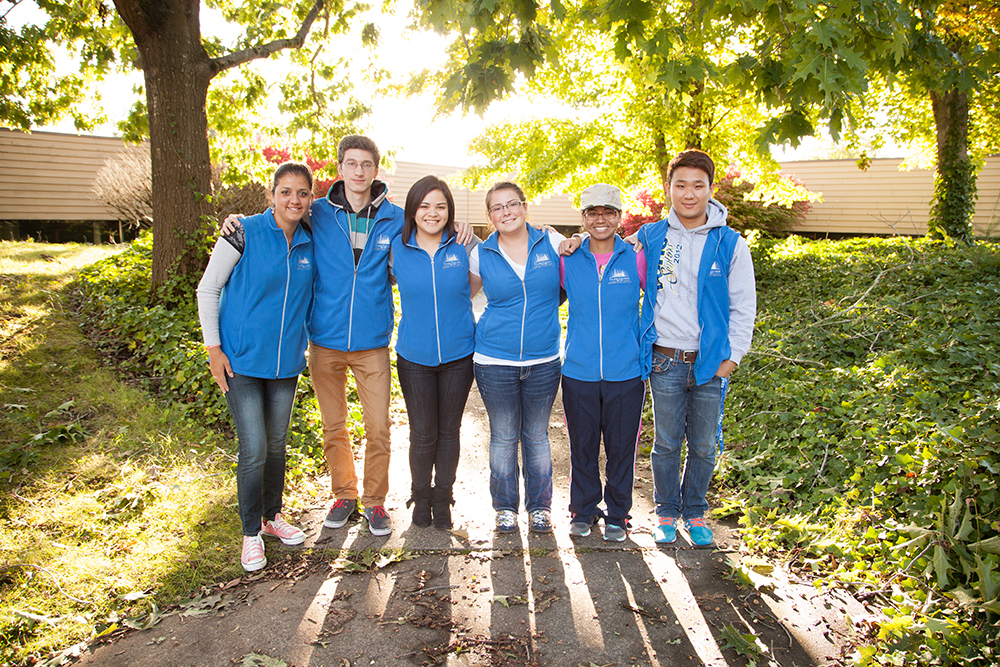An investment in students’ financial futures

Judy Starr, director of Corporate and Foundation Relations at Clark College Foundation, center, receives a check from David Reiter, senior vice president and private client manager for Bank of America, and Jessica Hewitt, vice president of Enterprise Business & Community Engagement for Bank of America.
The Bank of America Charitable Foundation recently awarded Clark College a $20,000 grant to support a full-time financial literacy coach at Clark College. The coach works directly with students to help them stabilize their finances and increase the likelihood of students meeting their economic, educational, and career goals.
The grant, delivered to Clark College Foundation, provides ongoing support within Clark College’s Career Services department for students. Assuring that a full-time financial coach remains on staff allows the college to continue providing workshops, classroom presentations, and individual sessions focusing on how to budget, balance a checkbook, set long-term financial goals, and understand credit cards, credit scores and loan repayments.
“The full-time coach has been highly valuable for our students,” said Lisa Gibert, president and CEO of Clark College Foundation. “The coach assisted 64 students in one-on-one sessions over a seven-month period, held 27 different budgeting workshops for scores of other students and conducted specialty workshops for the Veterans Resource Center and the Pathways Center.”
Jamie Madison was one of those students. She was ready to graduate from Clark’s nursing program in 2015 when unforeseen circumstances led her to withdraw. When she was contemplating a return, she was unsure if she had the resources to do so. She met with Clark’s financial literacy coach, Craig Ebersole, who helped her outline her personal finances and discover ways to limit her spending and create a budget.
“I am now confident with my finances and proactively use the resources I have learned about,” said Madison, who returned to Clark to finish her degree. “These resources help me through college and prepare me for my career after graduation.”
Approximately 54 percent of Clark students come from families living below the poverty level, and 60 percent are unemployed or receive public assistance. Moreover, nearly three-quarters of Clark students are the first generation in their families to attend college.
“Bank of America understands that financial fluency and empowerment are key drivers for future financial mobility and success,” said David K. Reiter, senior vice president at U.S. Trust Bank of America Private Wealth Management in Vancouver. “That is why we are proud to support Clark College Foundation on this important decision to retain a financial coach. When individuals feel financially secure and are able to achieve their financial goals, communities are made stronger and we all benefit.”
A budgeting course delivered by the financial literacy coach was added to the College 101: College Essentials course last year. All students working toward an Associate of Arts degree are required to complete the course, which introduces students to campus resources, such as campus navigation, technology, tutoring support, and financial aid.
Text and photo provided by the Clark College Foundation.
